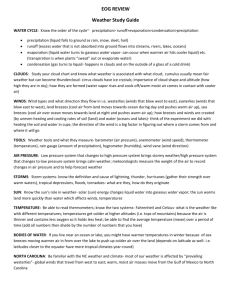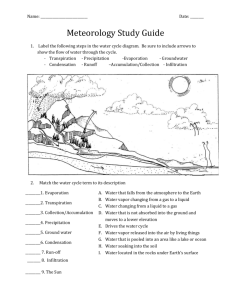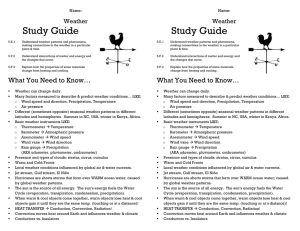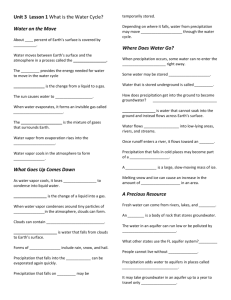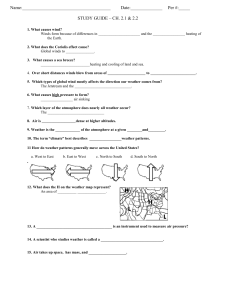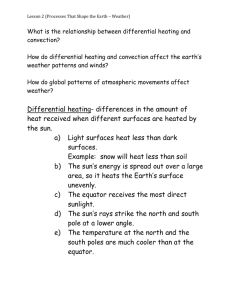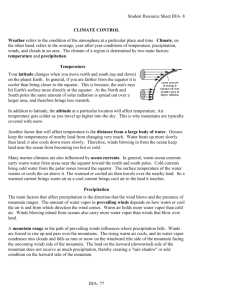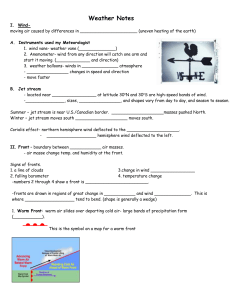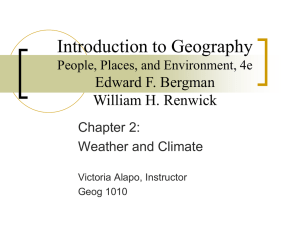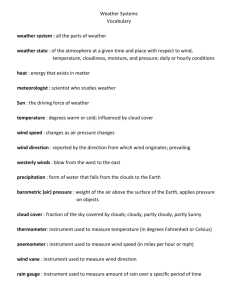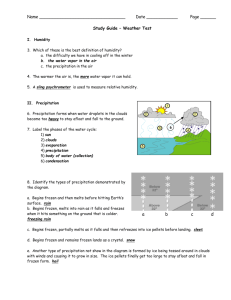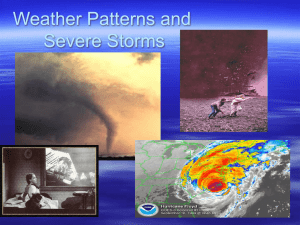WEATHER * Match the weather words to the correct picture
advertisement
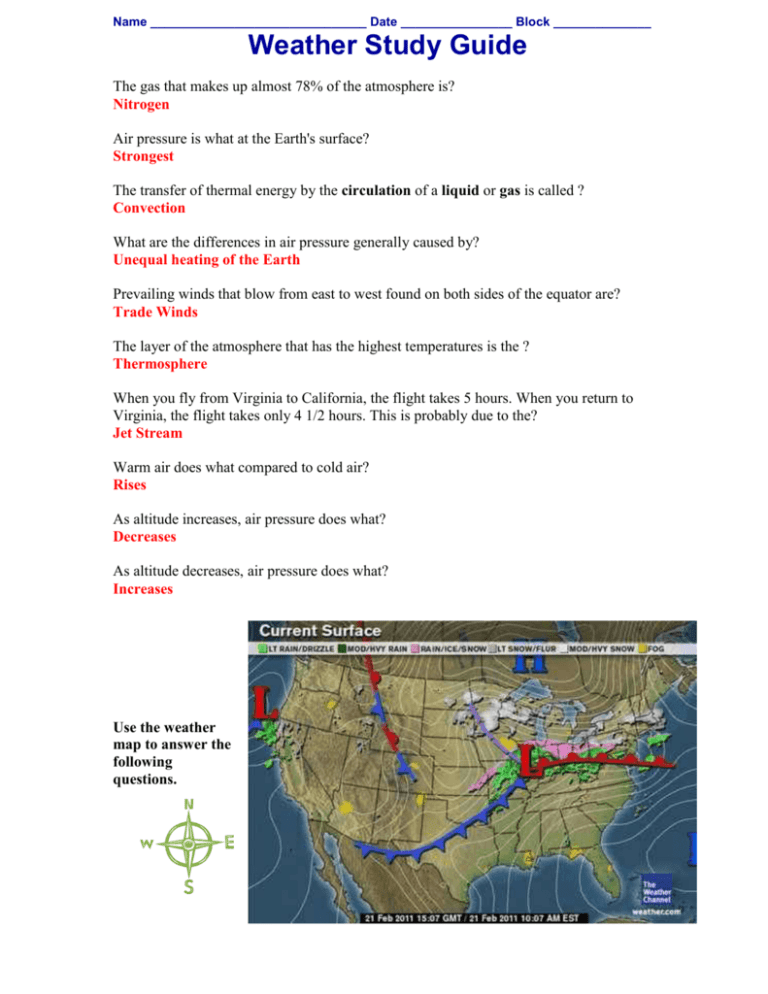
Name _______________________________ Date ________________ Block ______________ Weather Study Guide The gas that makes up almost 78% of the atmosphere is? Nitrogen Air pressure is what at the Earth's surface? Strongest The transfer of thermal energy by the circulation of a liquid or gas is called ? Convection What are the differences in air pressure generally caused by? Unequal heating of the Earth Prevailing winds that blow from east to west found on both sides of the equator are? Trade Winds The layer of the atmosphere that has the highest temperatures is the ? Thermosphere When you fly from Virginia to California, the flight takes 5 hours. When you return to Virginia, the flight takes only 4 1/2 hours. This is probably due to the? Jet Stream Warm air does what compared to cold air? Rises As altitude increases, air pressure does what? Decreases As altitude decreases, air pressure does what? Increases Use the weather map to answer the following questions. List at least two states that are having precipitation? How do you know? (Ohio, Illinois, Indiana, Pennsylvania, West Virginia, Missouri) These are some of the states that the Low is sitting over and precipitation is usually associated with a warm front. Know what type of weather front is over a certain state? Example: A cold front is sitting over the state of Texas and the skies are clear. Know what kind of weather will a state be having once the front arrives? Example: Virginia will be experiencing some precipitation as the warm front arrives with the low. Know what kind of weather is the country (North of U.S.) having? How do you know? Canada is experiencing clear skies with a high sitting over the area. No precipitation can be seen around the high. What is happening over the plain states? What kind of weather are they having? A stationary front is sitting over the plain states and some light snow can be seen to the west of the front. What is arriving off the West Coast Line? A low is arriving off the West Coast bringing with it some precipitation. What kind of weather passed on the East Coast Line? Precipitation will be passing soon off the East Coast associated with the Low warm front. The winds that have the most effect the United States? Westerlies Differences in air pressure usually cause? Winds The layer in the stratosphere that protects life on Earth by absorbing harmful ultraviolet radiation? Ozone The layer of the atmosphere that is closest to the Earth is ? Troposphere The gradual warming in the average global temperatures of Earth over the past 100 years is referred to as ? Global Warming A gas form of water that exists in the atmosphere is called? Vapor The apparent curving of the path of winds due to the Earth's rotation is called the? Coriolis Effect Provide a good example of when the weather doesn’t match the climate. Give details! Florida usually has mild temperatures during the winter. If a cold front arrives with precipitation and the temperatures drop, Florida could get clobbered with a snow storm. Give an example of conduction, convection, radiation. What do these words have to do with weather? Conduction = Requires Direct Contact Convection = Found in Air or Water Radiation = Warming by the sun The Earth is heated by the sun’s radiation. Then the heat is absorbed by the Earth through conduction. Finally, the heat is released back into the troposphere through convection currents. What is the difference between a tornado and a hurricane? Hurricanes usually develop over water and can last several days. The season begins in June and continues through November. Tornadoes usually develop over land and last only a short period. The season begins in March and last through August Hurricanes and tornadoes both form in warm, damp air when winds blow into each other from opposite directions. Draw a picture of the globe and label all the different kinds of winds. WEATHER – Write the weather words to match the correct picture. Describe what the may bring or do within each box. 29. warm front 23.hygrometerhumidity If warm air is moving toward cold air, it is a “warm front”. 24. barometer- 30. cold front air pressure A cooler mass of air, replacing a warmer mass of air. 25. anemometerwind speed 26. weather mapIndicates type of weather an area is having. 31. stationary front- Red Blue Red/blue A boundary between two different air masses, neither of which is strong enough to replace the other. 32. occluded frontWhen a cold front overtakes a warm Purple front. 27. thermometer- 32. snow- Temperature Frozen water that falls from the sky. 28. wind vane- 33. rain- Wind direction Liquid precipitation.
